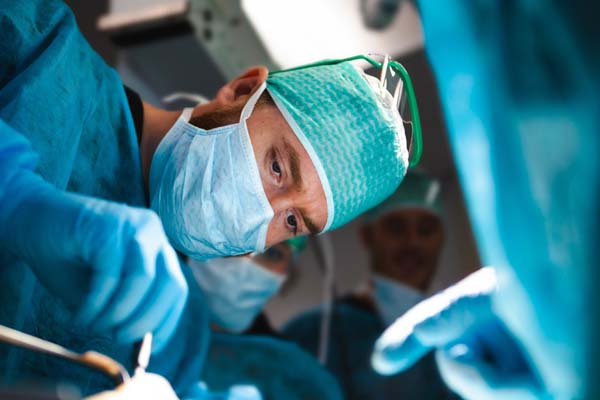When Is Maxillofacial Surgery Required?

Maxillofacial surgery is a dental field that deals with surgical procedures related to the mouth, face, and jaw. The process can range from a minor corrective treatment to a major facial reconstruction. Patients dealing with various dental and facial issues need to know when maxillofacial surgery is necessary. This type of surgery requires specialized skills, as it helps to restore both form and function of the face and jaw.
An overview of maxillofacial surgery
Healthcare professionals often recommend maxillofacial surgery to address multiple concerns. Oral surgeons undergo extensive training to handle these complex treatments, including facial trauma repair, corrective jaw surgery, and tooth extractions. These procedures can serve functional purposes and restore normal tooth function. Sometimes, the goal might be to improve the patient’s appearance.
This type of surgery may be required, for instance, when a wisdom tooth trapped in the jawbone can cause pain and disrupt the structure of neighboring teeth. Another example is misaligned jaws, which can result in disordered bites, poor chewing, speech issues, and even breathing struggles. In such cases, maxillofacial surgery is necessary to restore balance and function. Other primary indications for the surgery include:
Facial trauma
Injuries and accidents can cause indelible marks on the face, fracturing the mandibles, orbital bones, and zygomatic arches. The injuries are not simply cosmetic. They can affect the patient’s vision, eating, and breathing considerably. The oral surgeon takes the role of reconstructing the structures to restore function and the person’s facial identity.
Oral cancers and tumors
If tumors are present around the oral cavity, face, or neck, the oral surgeon needs to perform surgical excision to remove them. However, the procedure extends beyond the tumor removal. The surgeon will also reconstruct the face by building tissue flaps and grafting bone to restore facial function and aesthetics after the tumor is gone.
Cleft lip and palate repair
Patients born with cleft lips and palate may struggle with their facial appearance, leading to self-consciousness and low confidence. The surgeon can perform this corrective surgery and improve facial structure. The procedure also improves the ability to speak, eat, and hear. Patients may also get a major self-esteem boost.
Chronic conditions and infections
Conditions like temporomandibular joint dysfunction or severe jawbone infection can cause significant pain and make life unbearable. Such patients can undergo maxillofacial surgery to get relief. The procedure can alleviate pain, restore jaw function, and stop further deterioration. Patients can live normal lives and enjoy regular acts like chewing and speaking without pain.
Sleep apnea
Sleep apnea is sometimes hard to treat. In severe cases where using non-surgical options like oral appliances and CPAP devices are ineffective, maxillofacial surgery can be necessary. The procedure entails altering bone structures to open the airways. The treatment improves breathing while sleeping and the patient’s overall well-being.
Dental implants and bone grafts
When a tooth or two is missing, the oral surgeon may recommend dental implants to restore them. If the jawbone is deficient, bone grafts can strengthen it so it can support the implants. This option is one of the most natural-looking options for replacing lost teeth.
Aesthetic reasons
Maxillofacial surgery is not always about functionality. Sometimes, oral surgeons recommend the procedure to cater to a patient’s aesthetic aspirations. The procedure can include refining facial contours and altering the chin, cheeks, and jawline. The aim is to enhance facial symmetry and cosmetic appeal, ultimately boosting the patient’s self-image.
The benefits of maxillofacial surgery
Maxillofacial surgery can improve one’s life considerably by correcting functional and aesthetic issues. The main goal is to relieve discomfort, improve oral function, and enhance appearance. For conditions like cancer and trauma, the surgery can save the person’s life by removing harmful growths and repairing skin and tissue impairments.
Preparing for the procedure
If the oral surgeon has recommended maxillofacial surgery, usually after careful evaluation, they will discuss the steps involved, potential risks, expected results, and post-operative care. Patients are advised to only consult a board-certified, experienced professional to ensure optimal outcomes. The surgeon’s skills play a part in the success rate and recovery journey.
Final note
Patients need to discuss at length with the oral surgeon and understand what is expected of them. Maxillofacial surgery can be life-altering and requires careful consideration. The procedure combines necessity and personal preferences. Regardless of the purpose, patients can be sure of improved functionality and appearance afterward. To learn more, schedule an appointment with our office today.
Request an appointment here: https://arroyogrande.centralcoastoms.com or call Wilson Oral Surgery at (805) 476-2567 for an appointment in our Arroyo Grande office.
Check out what others are saying about our services on Yelp: Read our Yelp reviews.
Related Posts
Implant dentistry involves teeth replacement with dental implants. One popular option within implant dentistry is an implant-supported bridge, which is ideal for replacing a section of missing teeth. The following review discusses everything you should know about an implant-supported bridge.Many are choosing implant dentistry for teeth replacement over a traditional fixed bridge and removable partial…
Implant dentistry involves the replacement of natural teeth after tooth loss occurs using titanium posts (known as dental implants) and the attachment of a restoration, such as a dental crown, dental bridge, or denture. A bone graft is often necessary before an implant dentistry procedure, particularly when there is not enough healthy bone inside the…
An implant dentist is a dental professional that offers dental implant restorations. Implant dentists often recommend dental implant restorations because of the benefits they offer that alternative solutions such as fixed bridges and removable dentures cannot provide.To help you decide if treatment may be right for you, this review discusses why implant restorations are so…
Oral surgery often requires sedation to keep you comfortable and relaxed during your treatments. Sedation dentistry reduces your sensitivity to pain; some forms can make you feel more relaxed during treatments. Oral sedatives might also be recommended for patients with dental anxiety.There are several types of sedation used in oral surgery, each catering to different…
